
3D-printed boat molds will be focus of a UMaine composites center spinoff
A 3D-printing company plans to print large objects such as boat molds and components as it transitions research performed at the University of Maine’s Advanced Structures and Composites Center into a commercial environment.
Evergreen Additive Inc. is setting up operations at Brunswick Landing in Brunswick.
The company said last week that it was spun off from the University of Maine to serve the commercial marine tooling and defense unmanned systems markets.
The 3D technology could help to address challenges facing Maine's maritime industry, including skilled labor shortages and long manufacturing lead times, the company said.
“Large-format additive manufacturing offers a path forward by automating production while maintaining the quality and performance Maine manufacturers are known for,” said Kyle Warren, Evergreen’s CEO.

Evergreen timed its launch to coincide with Maine Manufacturing Month.
The company’s work exemplifies Maine’s economic development strategy goals, said Jake Daniele, small business development manager at Maine’s Department of Economic and Community Development.
“By pioneering advanced manufacturing for maritime composites in Maine, they are helping to build a future-ready workforce, strengthen Maine’s economy and anchor high-quality jobs here at home,” Daniele said.
Real-world application
The Advanced Structures and Composites Center, led by founding Executive Director Habib Dagher, has spun off a number of companies over the years.
“One of our goals is to take the technology and make sure it works for people in the state of Maine and to make jobs in Maine,” said Dagher.
Past spinouts from the center include Compotech in Brewer, one of 15 Maine companies ranked this year among the nation’s fastest-growing private enterprises; and Global Secure Shipping in Old Town.
Joan Ferrini-Mundy, president of the University of Maine, said the company’s launch “represents an exciting moment for Maine and for the University of Maine.”
She continued, “What began as cutting-edge innovation on our campus is now moving toward real-world application in Maine’s advanced manufacturing sector. It’s another example of UMaine graduates leading and innovating right here in Maine.”
Vessel test
At Evergreen, the plan is to offer advanced manufacturing consultation, rapid prototyping services and production manufacturing.
Earlier this year, a large group of Advanced Structures and Composites Center personnel, which included four UMaine employees who later formed Evergreen, developed and tested an unmanned surface vessel built using large-format additive manufacturing. The project was funded by a contract that the University of Maine has won through the U.S. Office of Naval Research.
Evergreen was founded by Warren, Peter Drown, Andrew Gifford and Benjamin Steva. Each has worked at the Advanced Structures and Composites Center for at least a few years and together bring extensive experience leading or managing advanced manufacturing research projects for government and industry.

The team recently located its headquarters in an office space at TechPlace at Brunswick Landing and is working with the Midcoast Regional Redevelopment Authority, which manages the industrial park, to find manufacturing space there.
The company is working with equipment suppliers to procure machines that will include a “large format” robotic additive printing machine of some six feet wide by 12 feet long, with a goal to expand to 12 feet by 36 feet.
Capabilities would include 24/7 production with minimal supervision and the potential to work on several large projects per week.
The goal is to have equipment installed and operational by early 2026. The initial equipment investment will be about $1 million, funded by the founders and private investors. The company won a $42,000 award when it was selected for a highly-competitive spot within the Defense Innovation Unit “dual-use university accelerator,” a program focused on university technology commercialization.
Over the coming three years, it’s expected there will be about $5 million of capital investment into the facility. The team said they will be looking at the debt market and grants for additional funding.
Over the next five years, the company could create at least 10 to 12 full-time jobs, including the four founders.
Leg work
Gifford, Evergreen’s CTO, has been in the large format space for about a decade — pretty much since the inception of the technology, he said. The technology is reaching the point where equipment and feedstock costs have come down enough to make the technology viable for commercialization for numerous applications, he said.

“We have a lot of customers that are interested and looking at the technology,” said Gifford. “A lot of that leg work has been done.”
The founders said they’re building a sales pipeline for commercial tooling and are waiting for the federal government to reopen to finalize a contract that was previously in the works.
“Things are in motion,” said Warren. “We’re planning to transition full-time in early Q1 2026.”
Complementary markets
The goal is to serve two complementary markets.
- Produce tooling and manufacturing aides for boatbuilders, with tooling delivered 50% to 75% faster and more cost-effectively than traditional methods. Tooling examples include patterns and direct-use molds for large boat components such as hulls and decks, and small parts for recreational, commercial and custom watercraft.
- Manufacture “expendable unmanned surface vessel” for the U.S. Department of Defense.
Earlier this year, the Advanced Structures and Composites Center research team, which included the four UMaine personnel who later formed Evergreen, designed, manufactured and tested a 6-meter unmanned surface vessel on Casco Bay. The hull and components were designed and produced using robotic large-format additive manufacturing at the Advanced Structures and Composites Center facilities.
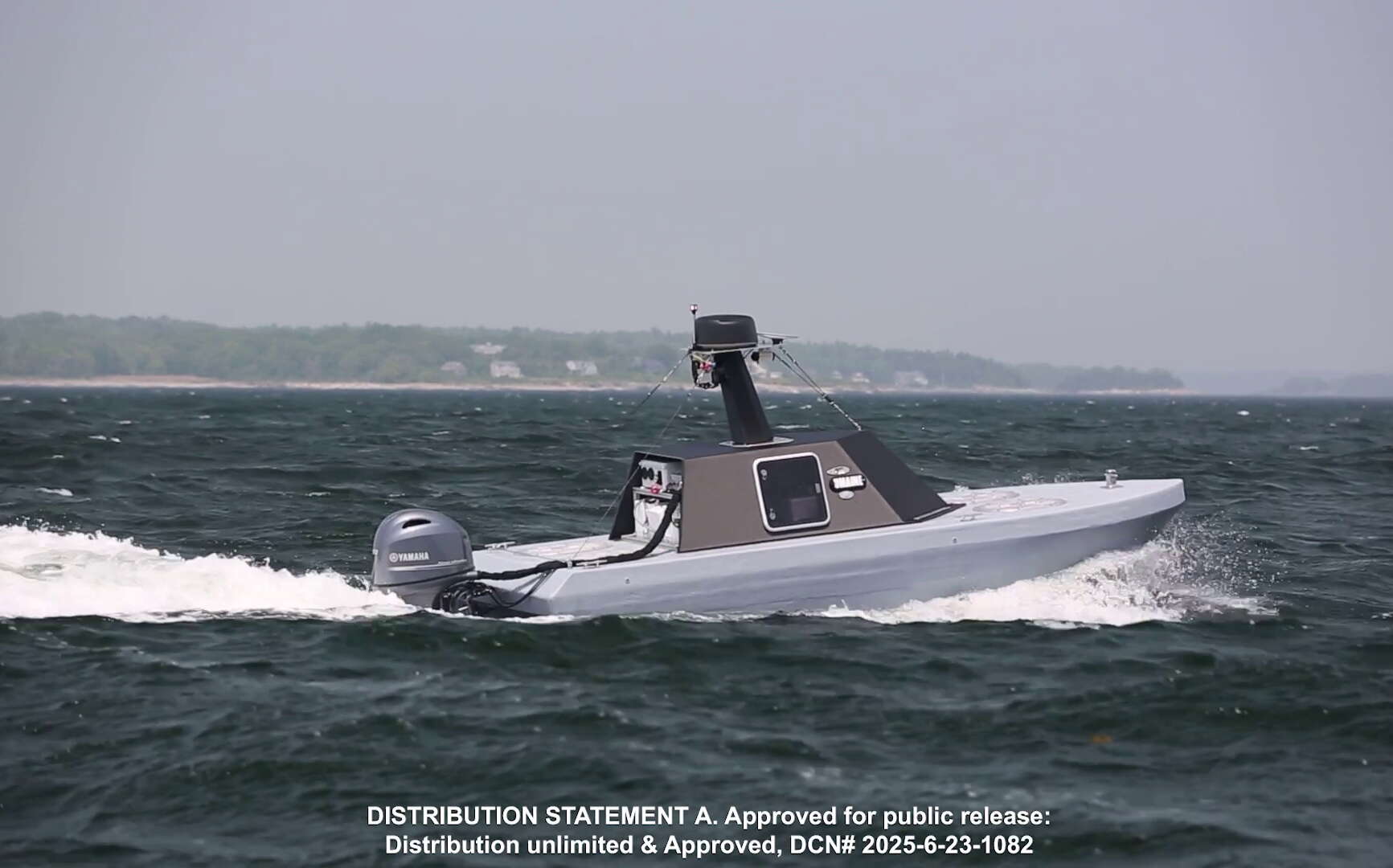
"This wasn't a laboratory experiment," said Ben Steva, Evergreen’s COO. "We put a vessel in the water, operated it in real conditions and proved the technology works outside of the laboratory."
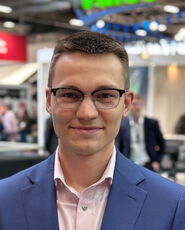
Maine boatbuilders are “constrained by long lead times for tooling, skilled labor shortages, rising material costs and unpredictable supply chains," said Gifford. "We aim to overcome these challenges through our advanced manufacturing technology workflow and deliver high quality tooling in half the time.”
Evergreen said it maintains a close partnership with the Advanced Structures and Composites Center, where the core technology was advanced and validated through Navy-funded research programs. The relationship is expected to provide continued access to emerging technologies, advanced testing facilities and workforce development opportunities.
“Having the University of Maine’s Advanced Structure and Composite Center lay out the groundwork for new ventures like Evergreen Additive is a testament to Maine’s growing strength in advanced manufacturing and our ability to compete in next-generation industries,” said Daniele.
Peter Drown, Evergreen’s CFO, credited the center and its “commitment to push the boundaries of materials science and manufacturing” for inspiring the creation of Evergreen and previous companies as well as jobs.
“We're proud to carry that mission forward as the latest ASCC-inspired spin-out company that transitions world-class research into a scalable business,” said Drown.

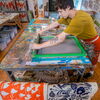




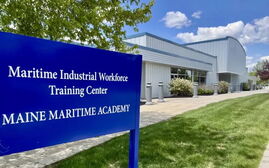

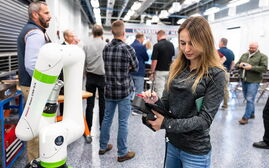




0 Comments